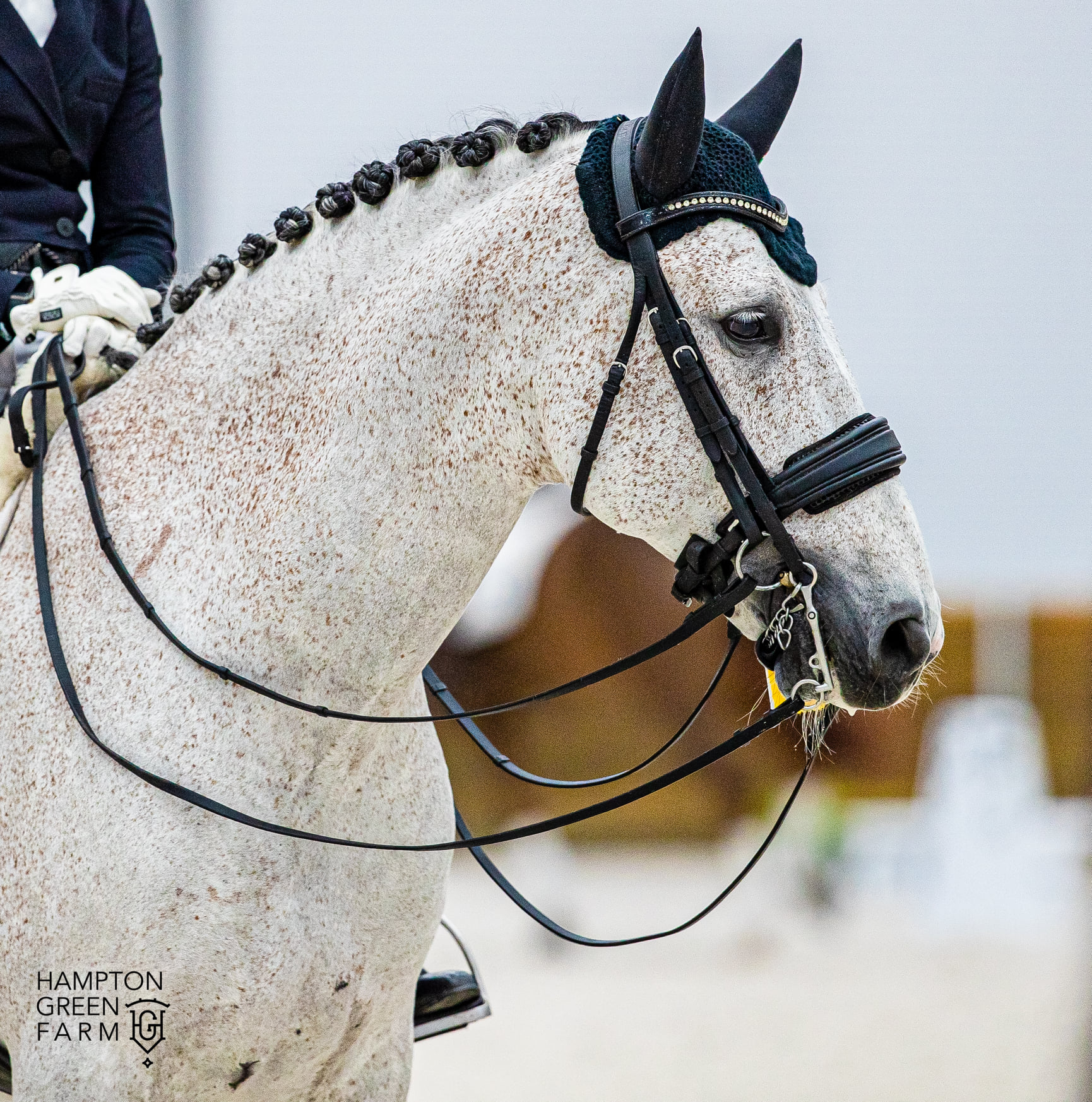It’s been three years since I moved to Ocala to start a new marriage and build a life in a new community. Leaving Wellington was ultimately a decision that took place in increments, and which surprised me as it was happening. I wasn’t leaving the horse world, but I was leaving the familiarity and safety of my beloved bubble (as my friend Ken Braddock likes to refer to it).
I’ve often referred to the Global Dressage Festival as a “13 week cruise with 700 of your closest friends”—hard to imagine unless you’ve lived it as I did. The dressage world in Wellington is easy to mis-categorize—privileged people living an artificial existence in a contrived world where there is always a new season, or a new competition cycle, or a new “pair” to raise the collective heart rate and suspend the unreality for another year.
Some aspects of this stereotype are true on the fringe, but not at its heart. The dressage world in Wellington as I knew it for more than 20 years is highly inter-connected and passionately supportive, a fabric consisting of all the roles that make up a community based on sport—from owners, trainers and athletes to credentialed professionals such as the vets and farriers, to the essential grooms, sports therapists and massage miracle-workers, to the men or women who built your barn, to the person who clothes you and your horse, or who supplies the feed and shavings that you rely on, Mosquito Guy and Carrot Man, old and young, saints and scoundrels. All come together into one friendly community where there is no hierarchy—as exhibited by the tables in the tent where a mix of all these groups can be seen enjoying meals together. When one of us does well, the whole family cheers.
Leaving Wellington also meant leaving another very important community to me—the PRE (Spanish Horse) lovers who were sprinkled throughout this world that is generally defined by the Northern European sport horse. We, the faithful converts, even have our own week during the season—USPRE Week or Week 3—where the Baroque Horse takes its deserved place in the spot light. I will never forget the finale of the last USPRE party prior to the Covid shutdowns —when more than 30 volunteer riders flooded the International Arena on their beautiful horses,r riding to Cassie Ortiz’ version of “This is Me.” For me, that was my personal Grand Prix Freestyle win!
But now, my life is Ocala. Ocala—it even sounds like the beautiful place it is. Rolling pastures and grand oak trees that used to be the playground of the Seminole, and which are now home to thousands of acres of young thoroughbreds. A genteel Southern aesthetic prevails here:
rural and old vs. urban and new (per much of coastal Florida); here more native, more authentic, more raw, definitely outside the bubble. County after county of horse and cattle farms, historic cracker architecture and land grant neighborhoods. The stunning new World Equestrian Center and the ambitious generosity of its owners don’t change the landscape, only accentuate it.
And to my surprise, Ocala is also home to lots of PREs and Lusitanos! From the first show at WEC, we were amazed at the number of Iberians and knew that there would be a positive response to us and our horses here. When Jim Wolf and I planned the Hampton Green Farm sponsorship of the show series, we made sure to carve out our own week of emphasis on the Iberian or Andalusian horse (expanded now to include all baroque horses originating from the Iberian peninsula). Our first Iberian Young Horse Challenge in March brought out close to 20 competitors in the Prix St. George, won by a Dutch professional with scores over 70% on a young Lusitano. Our opening reception brought together another wonderful group of people and the excitement for the potential that the WEC facility offers for our horses is over the top.
Several professionals in this area work with and compete Iberian horses alongside their other breeds, and I’ve recognized many brands on horses in the ring here, some originating from elite breeding farms in Spain. Several American PRE breeders that I’ve known from my USPRE days have relocated here for the benefit of the temperate climate as well as year-round (nonseasonal) equestrian activity.
One new relationship is quite special to us. For years I had heard of Tina Veder and her Baroque Games Institute, but had little understanding of the nature of her work with Bruno Gonzalez. Hearing that they had also relocated here from New York, I was anxious to meet them and their group of enthusiastic fans who have formed what might be described as a new discipline, a movement and growing trend for a certain demographic of the equestrian community.
Stemming from their combined years of experience in the baroque horse world and the riding traditions of Europe, Tina and Bruno have devised a program of training and showing that emphasizes the classical training scale without demanding the high level of athleticism that is necessary to be competitive in the sport. As a longtime PRE breeder, Tina has seen many riders of baroque horses be left out of the enjoyment of the full potential of their horse for a variety of reasons, mostly that their own riding skills or their horse’s gaits limit them to the lowest levels of dressage. Year after year, they fail to move beyond the basic levels and never have the chance to enjoy the technique of classical riding. The Baroque Institute offers a series of training patterns and tests that take the horse and rider from walk/trot to collection to high school movements in ways that are safe for both horse and rider, and which reflect the classical program but are still accessible to a wider range of riders and horses. A competition, the Baroque Games, gives these riders a chance to compete and be judged, successfully staged in New York, Virginia, and soon hopefully in Ocala.
They recently held a clinic at Hampton Green Farm at our Goldmark location, and we were delighted with the exercises and challenges that Bruno presented for each horse and rider. He has a deep understanding of the conformation and mechanics of the Iberian horse and how to develop its strengths to do the work that it was historically bred to do. Hampton Green wholeheartedly supports their philosophy and are happy to have another riding discipline for our clients and friends. HGF Head Trainer Maria Lithander summarized our weekend: ”Bruno’s system is great for riders of any level—the exercises are straightforward and kind to the horse as well as fun to ride.”
Watching young riders and young horses develop into internationally relevant competitors has been a great joy in my life, and those memories are rooted in my love for Wellington. But now, I find that I have great expectations for the verdant dressage community in Ocala, and am honored to be a part as it does the same.






